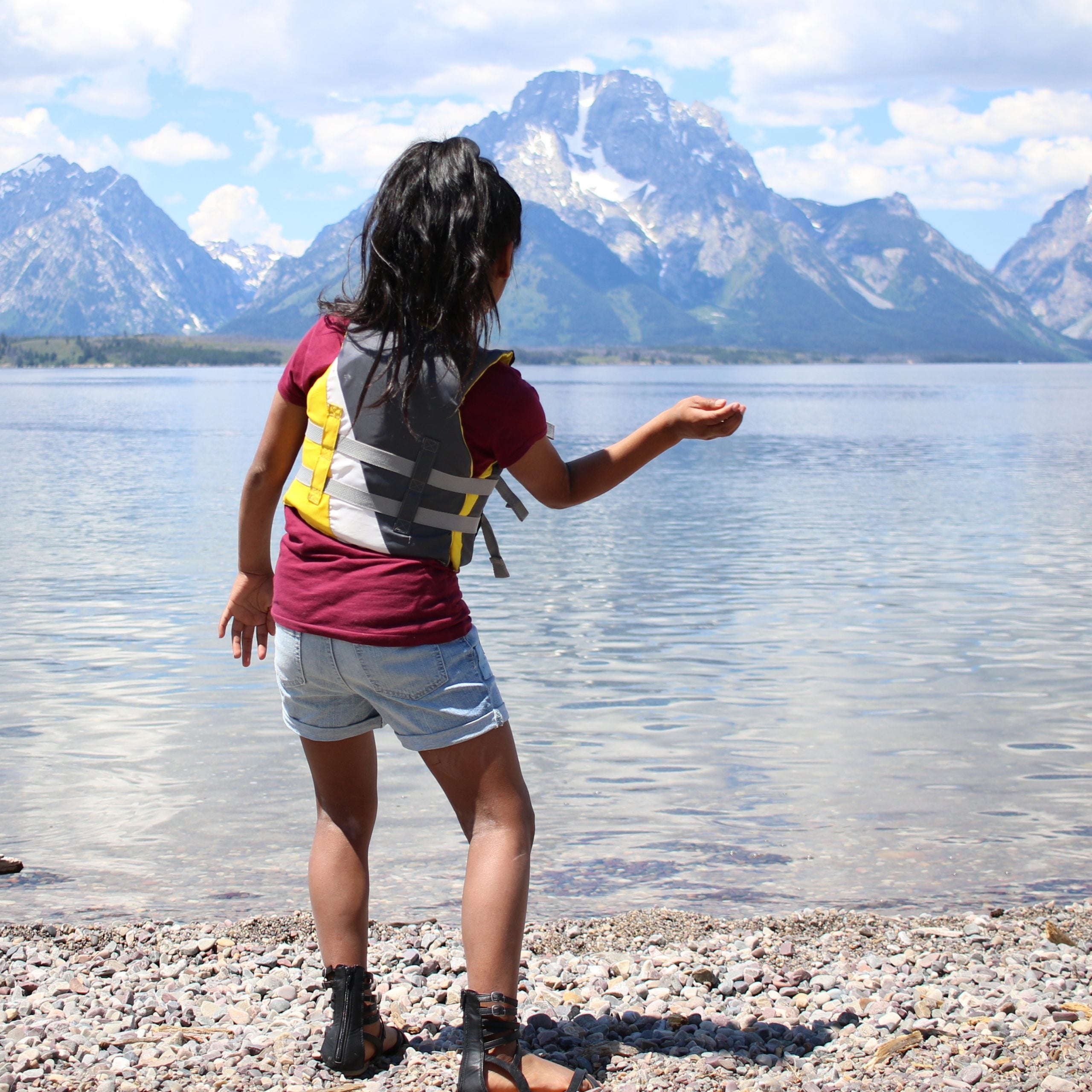As a girl growing up in a second-generation Mexican American family in East Salinas, California, a largely immigrant community ten miles inland from Monterey Bay, Dionne Ybarra went to the beach only a handful of times. The first in her family to go to college, Ybarra was afraid of the water and didn’t learn to swim until she was in her thirties. A few years later, she tried surfing for the first time and was hooked. “It changed my direction in life,” says Ybarra, now 46. “It was a feeling I didn’t know I could have.” She began traveling to surf and noticed that even in Mexico, where children live close to the beach, few actually surf. In 2010, Ybarra launched , a nonprofit surf school in Monterey Bay for girls who might otherwise never see the beach.
The Wahine Project is one of a growing number of organizations around the country—we’ve highlighted a handful below—dedicated to providing underserved youth an opportunity to experience nature firsthand. This is essential come summer, when school’s out and kids have more free time but often less freedom because both parents work. Camps are often prohibitively expensive, and “kids might have to be stuck inside because their parents don’t want them outdoors alone,” says Ybarra. “Growing up, I went to my grandma’s. I could be outside all day. Now the neighborhood where we lived isn’t as safe, and many people don’t have extended family in town. And the terrible thing about the recent immigration changes is that it’s going to put a lot of fear in families about where their kids are.”
Now in its seventh year, the Wahine Project runs one-week summer surfing day camps for girls ages five to 17. Fifty percent of this year’s 500 surfers will receive full or partial scholarships (the weeklong day camps cost $265), and the camp provides surfboards, wetsuits, lunches, and even swimsuits and towels. “If you don’t swim or go to the beach, you don’t have those things,” says Ybarra. “All these girls have to do is focus on surfing. There are no other barriers.” Not even transportation, thanks to a new grant that will provide 70 East Salinas girls with free round-trip bus rides to the beach.
The Wahine Project’s mission is to help girls develop a long-term relationship with surfing and the ocean. “It can’t all happen in one day,” says Ybarra, whose grant money provides summer scholarship kids the chance to keep surfing once a week all fall. “It takes time for them to get over their fears, to build care and compassion for the ocean, to develop friendships with the other participants and trust the instructors. It’s all about relationship building.” The results are more than worth it: “We see that overcoming their fear in the ocean in a very extreme way helps girls overcome their fear in everyday life. When they face it and catch a wave for the first time, this helps them become more confident in school and in their communities.”
Here are six other camps working to make that same kind of impact.
Brown Girl Surf
Based in Oakland, California, is dedicated to breaking barriers and building a more diverse women’s surf culture; 83 percent of its participants are women or girls of color. Three-day summer surf camps for girls ages nine to 18 integrate surf lessons with ocean awareness, marine ecology, and conservation.
The Surf Bus Foundation
empowers inner-city kids in Los Angeles by teaching them to surf and fostering a healing connection to the sea. Kids are bused to Santa Monica Beach once a week for eight weeks during summer to learn to catch waves, read tides and currents, and understand marine life and the effects of pollution on the ocean environment.
Big City Mountaineers
Colorado-based offers weeklong wilderness backpacking and canoeing trips for underserved youth ages 13 to 18 in California, the Pacific Northwest, the Boundary Waters of Minnesota, and Colorado.
Fresh Air Fund
This venerable outfit has been providing free summer experiences for New York’s urban youth since 1877. At the program’s five sleepaway camps on the Sharpe Reservation in upstate New York, some 3,000 kids (ages eight to 15) hike, camp, swim, and fish. All children who live or attend school in New York City and qualify for free or reduced lunch are eligible; applications are due by April 28.
City Kids
helps Washington, D.C., sixth graders develop resiliency and realize their full potential through weekend and after-school adventures. Come summer, the program decamps to the 62-acre Broken Arrow Ranch in the Greater Yellowstone Ecosystem, south of Jackson Hole, Wyoming, to bike, hike, backpack, horseback ride, and paddle.
Fernbrook Farms Environmental Education Center
The center’s provides one-week summer day camps at no cost (including transportation) to urban New Jersey youth from nearby Trenton who qualify for free or reduced lunch. , kids ages six to 11 harvest vegetables, collect eggs, navigate the woods with map and compass, cook in a solar oven, and build a shelter for wilderness survival.


